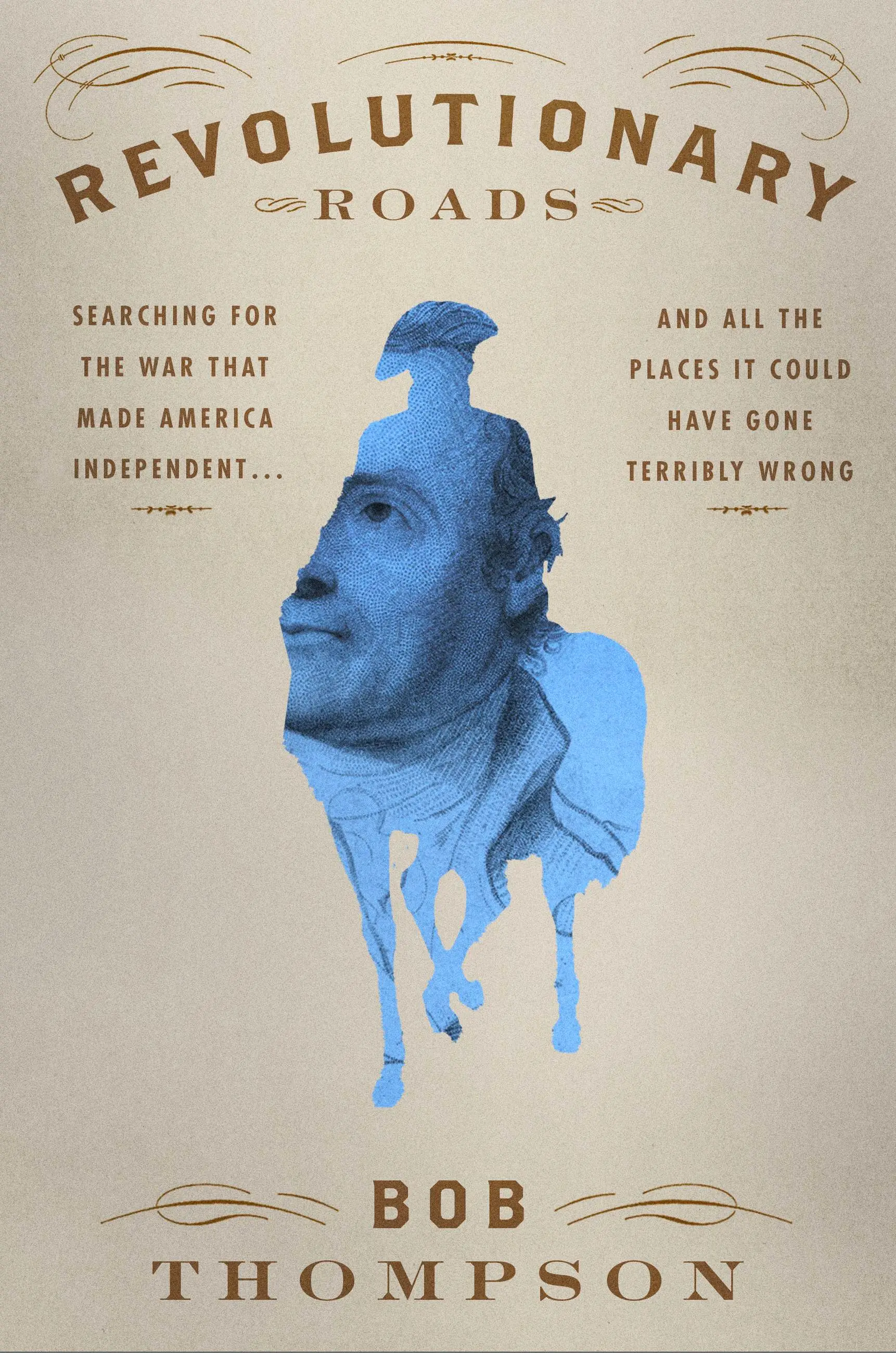Reimagining what “might have been” is something we all do with the past, with capital H history and the events of our own lives. In his book, Bob Thompson undertakes what he describes as a “ridiculously ambitious, one-person staff ride of the Revolutionary War.” (A “Staff Ride” is an educational tour for military officers, to learn from battles of the past). His goal is to consider the possible alternative outcomes for the battles of the American war of independence. He argues, “We don’t know this story as well as we should—or how easily the ending could have changed.”
Thompson is keen to take the reader along with him—assuming that we have about the same level of knowledge—and his enthusiasm shows through, in passages like this:
We don’t know nearly enough about the months-long catastrophe that was George Washington’s attempt to defend New York City in 1776. Fought on what would become some of America’s most expensive real estate—Brooklyn Heights! Midtown! The Upper West Side!—the New York campaign added up to a series of humiliating defeats or miraculous escapes, depending on who’s telling the tale. On the night of August 29, to take just one example, Washington and his badly beaten army were ferried across the East River from Brooklyn to Manhattan by a bunch of sailors and fishermen from Massachusetts.
But his bigger questions are what if it had gone differently for Washington, through which Thompson explores how lucky the American side had to be to come out the victors on many occasions. He points out:
We almost never think about what would have happened if neither the rebels nor the British had won the war. … But by 1781, a more likely scenario—fueled in part by French reluctance to throw more scarce resources at a cause that might be lost—was peace negotiations in which the European powers would hold all the cards, and which would, at best, preserve much of the territorial status quo.
Exhausting stalemates ending in truce were par for the course with many European land wars, so it would hardly have been unprecedented.
He attributes to personality clashes battlefield decisions that had huge ramifications. Bunker Hill “turned into a war-altering disaster for the British” because they “didn’t listen to Henry Clinton.” Clinton urged an early morning attack, but his colleagues rejected this suggestion because Clinton was “socially awkward” and they didn’t like him. Various degrees of pettiness among the officer class seem to affect both sides, in Thompson’s accounts.
